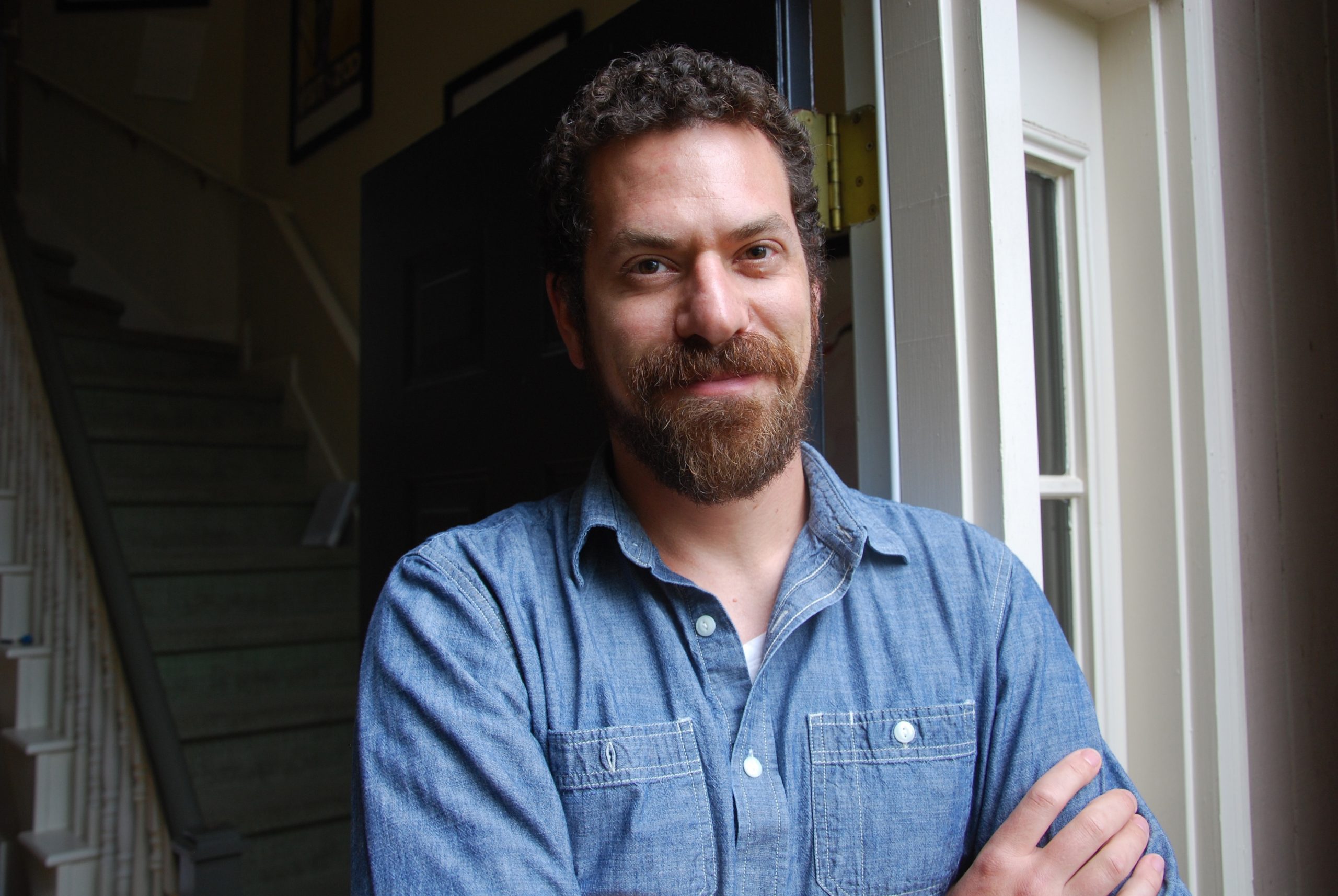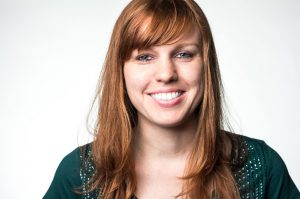
Seth Kotch, associate professor of digital humanities in American Studies, has assumed the role of director of the Southern Oral History Program, and Ashley Melzer, a writer, filmmaker and longtime contributor of editorial and digital content to Southern Cultures and the Center for the Study of the American South, will lead the College of Arts & Sciences’ Humanities for the Public Good initiative.
The appointments were announced by Elizabeth Engelhardt, senior associate dean for fine arts and humanities in the College. “Both Seth and Ashley bring outstanding skills and innovation to their new positions. Both roles involve strengthening the University’s ties to the community, and Seth and Ashley are adept at forging connections and making history and knowledge accessible to diverse audiences.”
Kotch is no stranger to SOHP, a program whose mission is to learn and share the stories of the South from the people who lived it and is one of the oldest such programs in the country, with more than 6,000 oral histories preserved. He served as digital projects manager for the program from 2008 to 2013.
“I am looking forward to the opportunity to pursue interesting projects with interesting people in one of the most storied oral history programs in the country,” said Kotch, who earned his master’s and Ph.D. degrees in history at UNC-Chapel Hill.
Kotch has developed several major digital projects in recent years, including A Red Record, which documents lynchings in the South, and The Media and the Movement, a digital archive of broadcasts from black activist radio stations from the 1960s and ’70s. A Red Record includes an interactive map of the lynchings and grew out of a class; many undergraduate student historians have contributed to the project. It has also been adapted into a popular Carolina K-12 learning module for middle- and high school teachers and as an installation in the North Carolina Museum of History in Raleigh.
One of the first projects he would like SOHP to embark on is to interview people who remember growing up before the polio vaccine was widely available — a project likely to have resonance as the human race seeks to adapt to living with COVID-19. A more ambitious long-term project is to document the stories of incarcerated people, work that stems from his more recent research on the death penalty and his 2019 book, Lethal State: A History of the Death Penalty in North Carolina.
Oral history is so much more than conducting interviews, Kotch notes. “It’s all the research that happens before the interview, and afterward, the long relationship with the interviewee, the intensive transcription process, the way you describe and index the interview, the keywords you assign, and then working with the Southern Historical Collection to make this deeply researched history available to others.”
“He really understands the language that librarians and archivists speak, and then makes the work accessible to communities,” said Malinda Maynor Lowery, director of the Center for the Study of the American South, in which SOHP is housed. “True accessibility means describing the research in a way so that the audience accessing it can see themselves.”
Kotch is also a member of the University Commission on History, Race and Way Forward. As SOHP director, he succeeds Rachel Seidman, who has relocated with her family to Washington, D.C.

Melzer, who received an M.A. in UNC’s American studies folklore program in 2009, will oversee the Humanities for the Public Good initiative. This four-year effort, funded in 2018 through a $1.5 million grant from the Andrew W. Mellon Foundation, seeks to bridge the silos between academic research and teaching and the surrounding communities that can both inform and benefit from such scholarship. Dean Terry Rhodes is the principal investigator of the grant.
Melzer has overseen multimedia production and special projects at Southern Cultures since 2013. She was the multimedia producer for UNC historian emeritus William Ferris’ Voices of Mississippi boxed set, which won two Grammys in 2019, and also produced Ferris’ MOOC course “The American South.” She is also no stranger to the Humanities for the Public Good initiative, having received funding from it for a one-person show she produced and directed, Zara, which explored religion, immigration and the South of the 1990s.
Outside of UNC, she is a founding member of Mettlesome, a Durham-based improv, comedy and storytelling performance collective, and she also produced the documentary You Gave Me a Song: The Life and Music of Alice Gerrard, which was shown at the 2019 Full Frame Festival and 2020 PBS Reel South. As marketing and operations manager for Innovate Raleigh, she helped area entrepreneurs and innovators develop their big ideas.
As someone who has studied and worked at UNC for over a decade and also been a member of the Triangle arts community for that time, Melzer says she understands how different those worlds can feel and is committed to bridging the divide.
“My job is to reframe and convene people in this new landscape,” said Melzer of assuming her new role during a pandemic. “This is a time when we need storytelling and scholarship more than ever. Restrictions can be opportunities.”
Humanities for the Public Good supports public humanities by promoting civic engagement in faculty teaching and research through efforts such as the Critical Issues Project Fund, graduate fellowships to help emerging scholars, and working with the Digital Innovation Lab to develop digital humanities projects.
Melzer said her first task will be to meet with stakeholders to find out “what is broken and what is not” and “do a lot of testing and experimenting” to divine the best formats for communicating with people when public, in-person events are no longer the norm.
Lowery describes Melzer as someone with “incredible facilitation skills to bring out the best in people, tap into strengths they didn’t know they had. She has the ability to knit together complex ideas but also complex people.”
Melzer succeeds Robyn Schroeder, who recently took a position at the College of William & Mary.
By Geneva Collins
